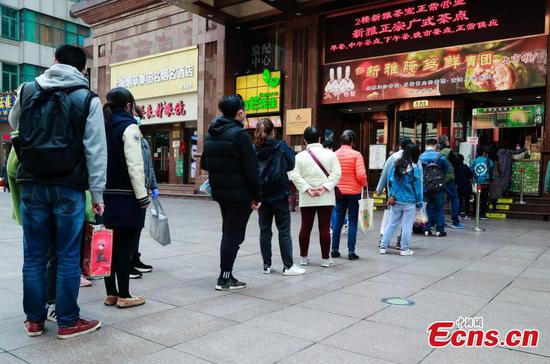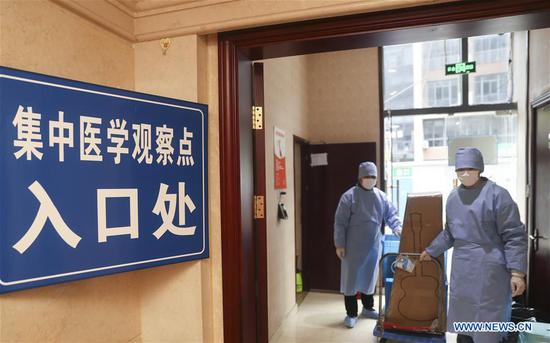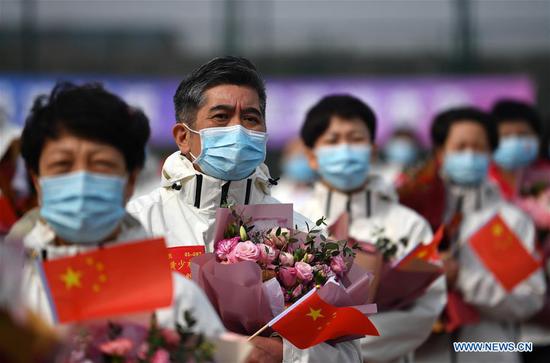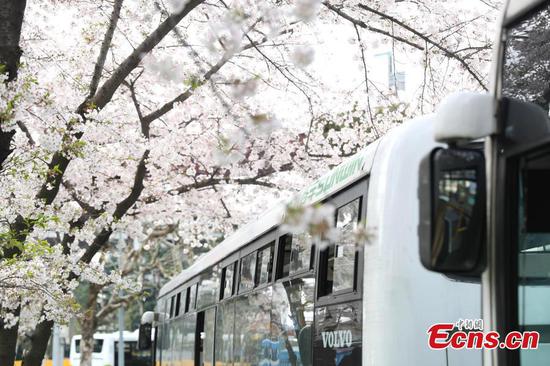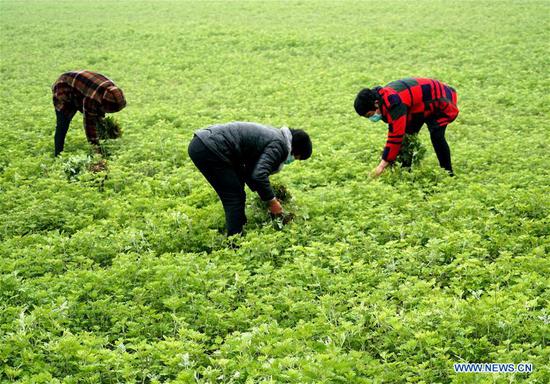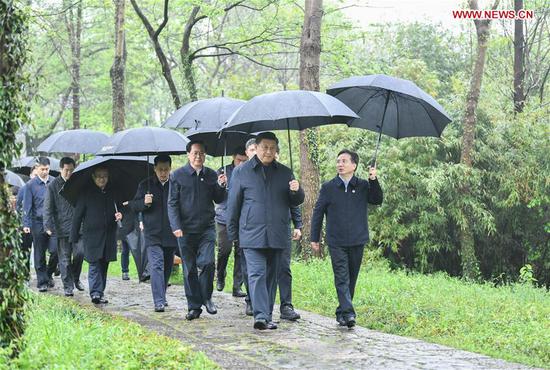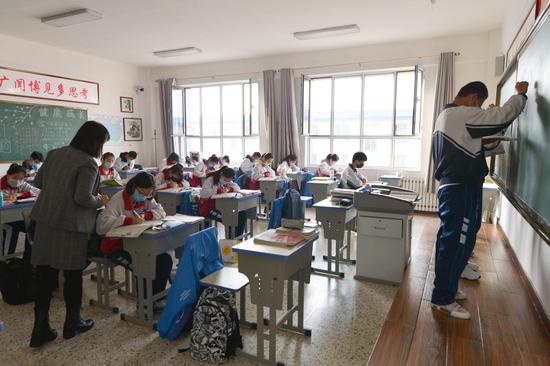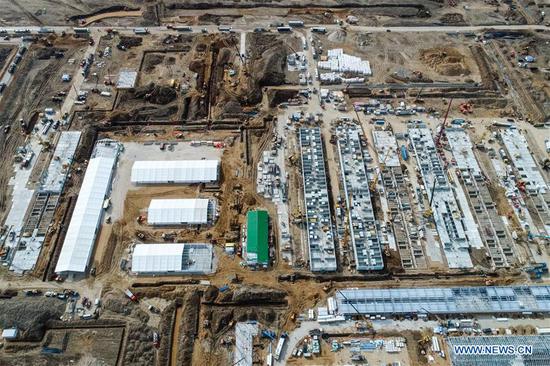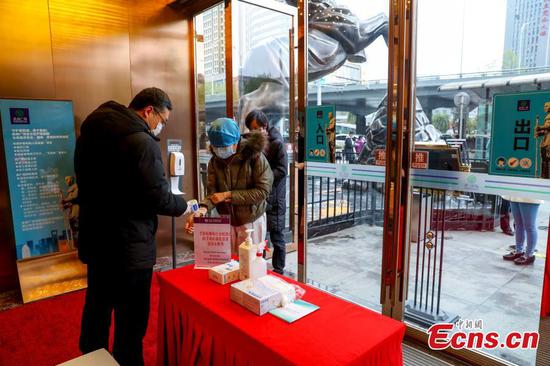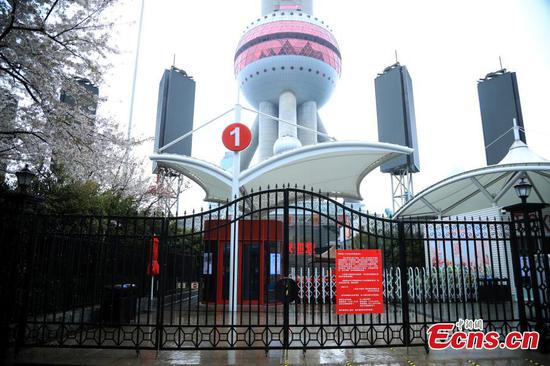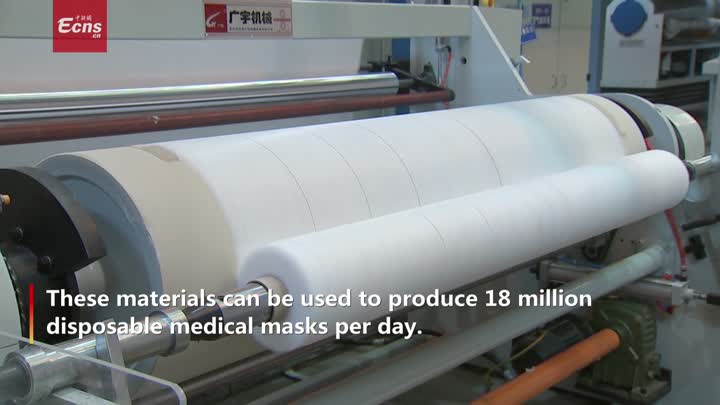
A customer purchases beverage in Jiangbei district of Chongqing, Southwest China, March 23, 2020. (Photo/Xinhua)
The novel coronavirus outbreak has had a huge impact on China's economy, but now that it has largely been contained, the country is promoting orderly resumption of work and industrial production.
However, the service sector has suffered the most, with canceled or reduced orders for some export-oriented enterprises casting an unemployment cloud on migrant workers.
That underscores why the Ministry of Agriculture and Rural Affairs and the Ministry of Human Resources and Social Security recently issued a joint statement providing policy support and guidance services for employing migrant workers.
The policy can help migrant workers get jobs and a certain income, at a time employers are cutting jobs citing uncertainties arising out of the epidemic.
Given that most migrant workers lack entrepreneurial skills and capital, the government must divert capital to investment projects in the countryside, thus creating jobs for migrant workers who return because of reduced opportunities in the cities.
The government should also restore the urban service sector, for example, by building infrastructure in urban areas to absorb some migrant workers. City governments could encourage urbanization and agricultural modernization by first giving migrant workers hukou (household registration) so that they become urban residents and then turning them into professional farmers through proper training.
If migrant workers can easily settle down in the cities where they work, they can benefit from unemployment insurance and other assistance their urban counterparts get when they lose jobs. The government should also focus on improving social security for migrant workers and give them the power to completely dispose of their rural land to protect their legitimate rights and interests.
Another way the government can help farmers is by hastening land reform in rural areas to allow farmers' zhaijidi (land alloted to farmers to build houses), now owned by the village, to enter the land market. This way farmers can enjoy property rights over their zhaijidi, which is tantamount to granting them a huge amount of overdue wealth that can serve as a solid foundation cushioning them against the impacts of unemployment as migrant workers in the cities.
In fact, the Communist Party of China vowed to expedite rural land reform at its 18th National Congress in 2012. But neither the lawmakers nor the government has yet pushed the envelop on their respective fronts to revise relevant laws or roll out policies to translate that pledge into action. The pandemic's pressure on employment should spur them to do it.









